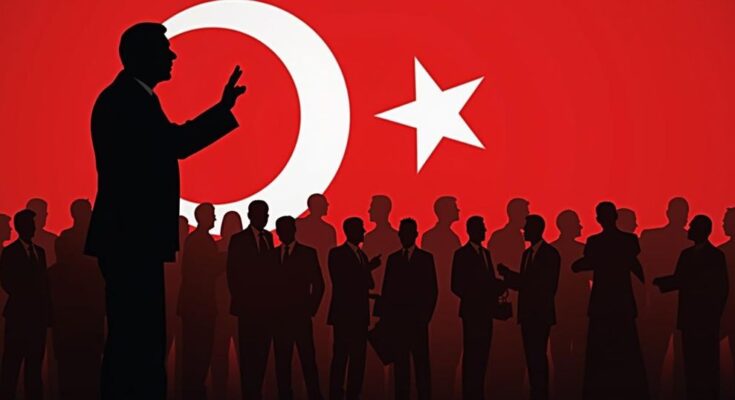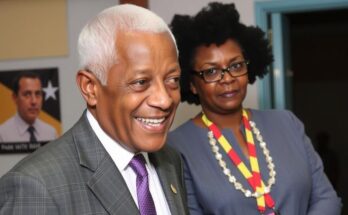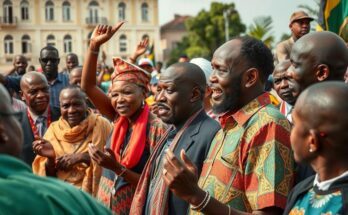Tunisia’s presidential election is viewed as a potential end to its democratic transition, with President Kais Saied facing few electoral challenges due to the disqualification and imprisonment of opposition candidates. This election reflects a significant decline in political freedoms and represents the culmination of years of consolidating autocratic power.
Tunisia is currently in a precarious political situation as voters head to the polls for a presidential election that many experts and critics anticipate will not be free nor fair. This election marks a troubling conclusion to years of political turmoil that began during the Arab Spring, which once inspired hope for democratic reform across the region. In 2011, mass protests prompted optimism in Tunisia’s political landscape; however, the nation has increasingly drifted towards autocracy in the years that followed. Sarah Yerkes, a senior fellow at the Carnegie Endowment for International Peace, articulated that despite the appearance of a normal electoral process, “this election really spells the end of Tunisia’s democratic transition.” Incumbent President Kais Saied, who was elected in a landslide in 2019 as a symbol of change against the previous political establishment, has since dismantled key democratic institutions. Following a controversial “self coup” in July 2021, he fired his prime minister, suspended parliament, and began ruling by decree. Critics assert that this quest for consolidation of power has resulted in a political landscape where legitimate opposition has been systematically suppressed. Out of 17 candidates interested in running, most have been disqualified, arrested, or face other punitive actions. The current election bears stark differences from previous elections, which were widely regarded as fair. Observers note the alarming number of political detentions and recent legal maneuvers that undermine electoral integrity. Human Rights Watch reports that over 170 individuals are currently detained for political reasons, including opposition members from the once-dominant Ennahda party. Thus, many view the upcoming vote as a formality that will serve to legitimize Saied’s power rather than a genuine contest. As tensions rise, many voters express frustration and disappointment, echoing sentiments that this represents the unraveling of Tunisia’s democratic ambitions. Recent political maneuvers raise concerns regarding the rule of law and human rights in a country that once held so much promise for democratic governance.
Tunisia has been at the forefront of the Arab Spring, becoming a symbol of hope for democratic movements in the Middle East. Following the mass protests of 2011, Tunisia appeared to transition successfully toward democracy with the establishment of free elections and political pluralism. However, this democratic progress has been undermined in recent years, particularly under the leadership of President Kais Saied, who has taken steps to consolidate power and diminish political opposition. This backdrop of political repression and the erosion of democratic principles creates a tense atmosphere leading into the current presidential election.
The impending presidential election in Tunisia serves as a critical juncture for the nation, highlighting the significant decline in democratic freedoms and governance since President Kais Saied’s rise to power. With many opposition figures silenced or imprisoned and the electoral process manipulated to favor the incumbent, the election is poised to reinforce an increasingly autocratic regime, marking a stark departure from the ideals of the Arab Spring.
Original Source: www.washingtonpost.com




